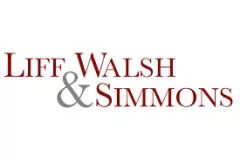During litigation, a party may engage in discovery and seek the production of documents from other parties as well as from nonparties. A subpoena is required to compel a nonparty to "attend, give testimony, and produce" designated documents, electronically stored information, or tangible things at a deposition. In Maryland, a subpoena is issued pursuant to Rule 2-510(a)(1)(B). It is common for a business entity to be served with a subpoena demanding the production of documents related to an ongoing legal proceeding. An important issue that arises for the nonparty recipient of the subpoena is: how far can it go to protect its business records?
The Appellate Court of Maryland recently addressed this issue in Trusted Sci. & Tech., Inc. v. Evancich, 262 Md.App. 621 (2024). Trusted Science and Technology, Inc. ("TST") was served with a subpoena related to a divorce case. The documents were sought by the wife so her expert could conduct a valuation of the TST shares owned by her husband. TST believed the subpoena requested confidential and highly sensitive information and filed an objection to the subpoena under Md. Rule 2-510(f), arguing that most of the requests were either overly broad or that the documents were irrelevant and "unnecessary for an appraisal or valuation of the company." The trial court held a hearing on the wife's motion to compel and decided that TST, as a nonparty, could not object to the relevance of the requested documents and ordered the production of those documents without considering TST's objections. TST appealed the trial court's decision.
A person served with a subpoena to attend a deposition and produce documents is permitted to file a written objection to the subpoena stating the reasons for the objection. The Appellate Court of Maryland concluded that "the ability of a person (including a nonparty) to object under Maryland Rule 2-510(f) encompasses that most basic objection that the discovery sought by the subpoena exceeds the bounds of Rule 2-402, which delineates the scope of discovery under the Maryland Rules, including that the discovery sought is not 'relevant to the subject matter involved in the action.'" Id. 646.
The Court found that the Maryland Rules do not expressly indicate that different standards govern discovery sought from a litigant versus discovery sought from a nonparty – only the process by which discovery is sought, or opposed, differs. "Thus, a nonparty has access to the same arsenal of objections to a subpoena as would a party." Id. at 651. The Court held that relevance, therefore, is a proper objection to a discovery request and TST, a nonparty, could object to the subpoena on relevance grounds. As a result, the trial court erred in compelling the production of documents without considering TST's objections.
The importance of the Appellate Court's decision is that it clarifies "the guardrails of the Maryland Rules to prevent parties to a civil action from using civil discovery to improperly obtain companies' confidential information." Id. at 643. If you have been served with a subpoena, the attorneys at Liff, Walsh & Simmons can assist you in protecting confidential business records.
The content of this article is intended to provide a general guide to the subject matter. Specialist advice should be sought about your specific circumstances.



